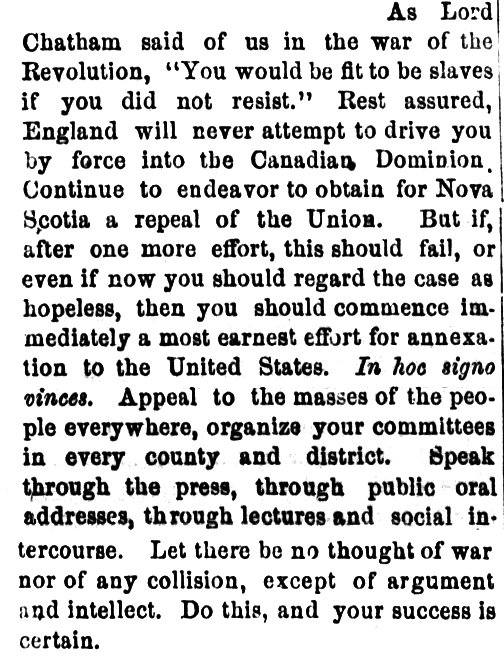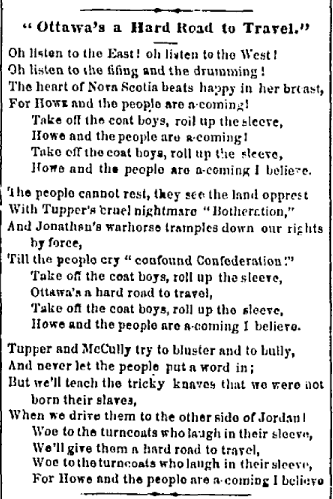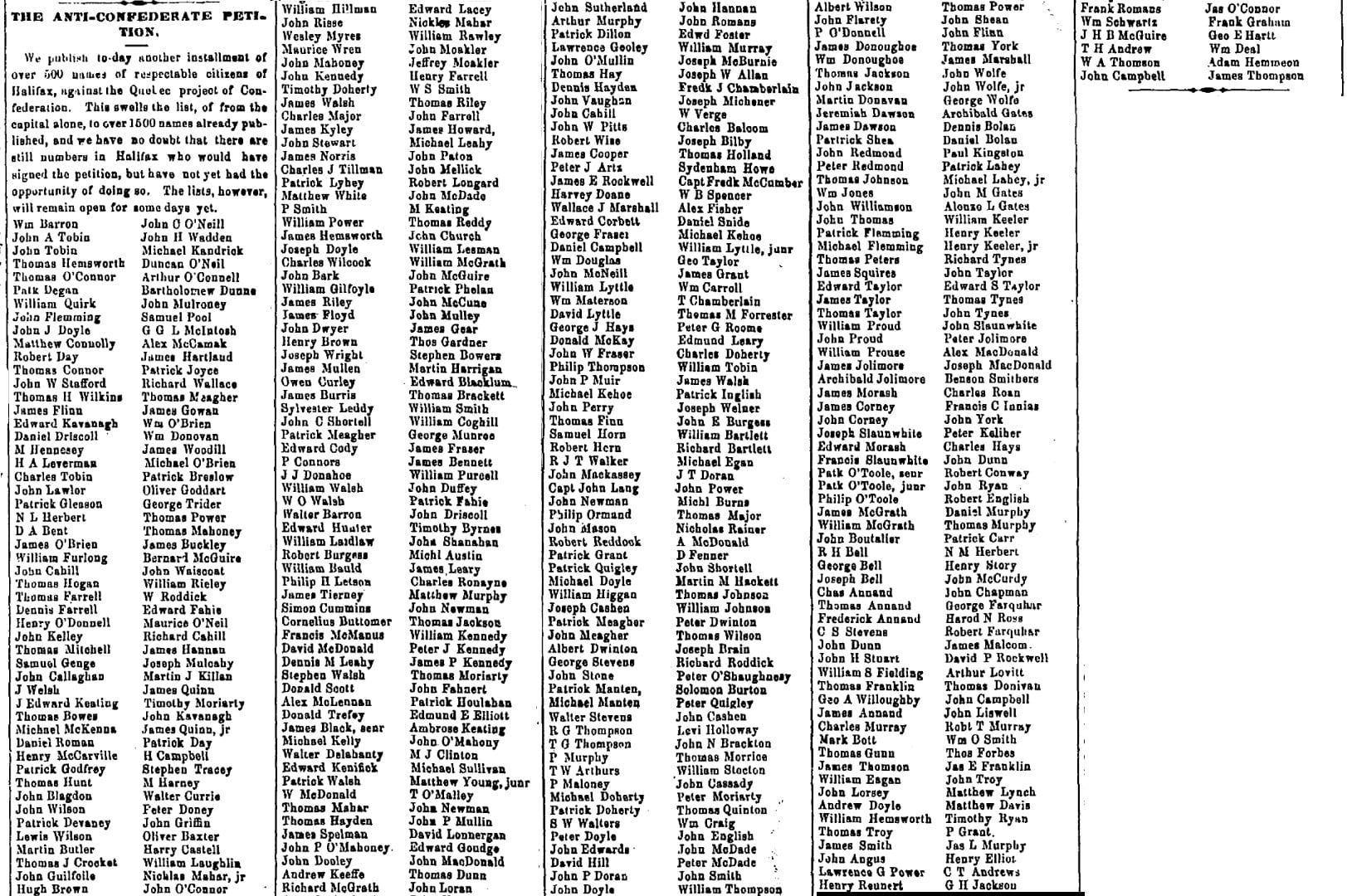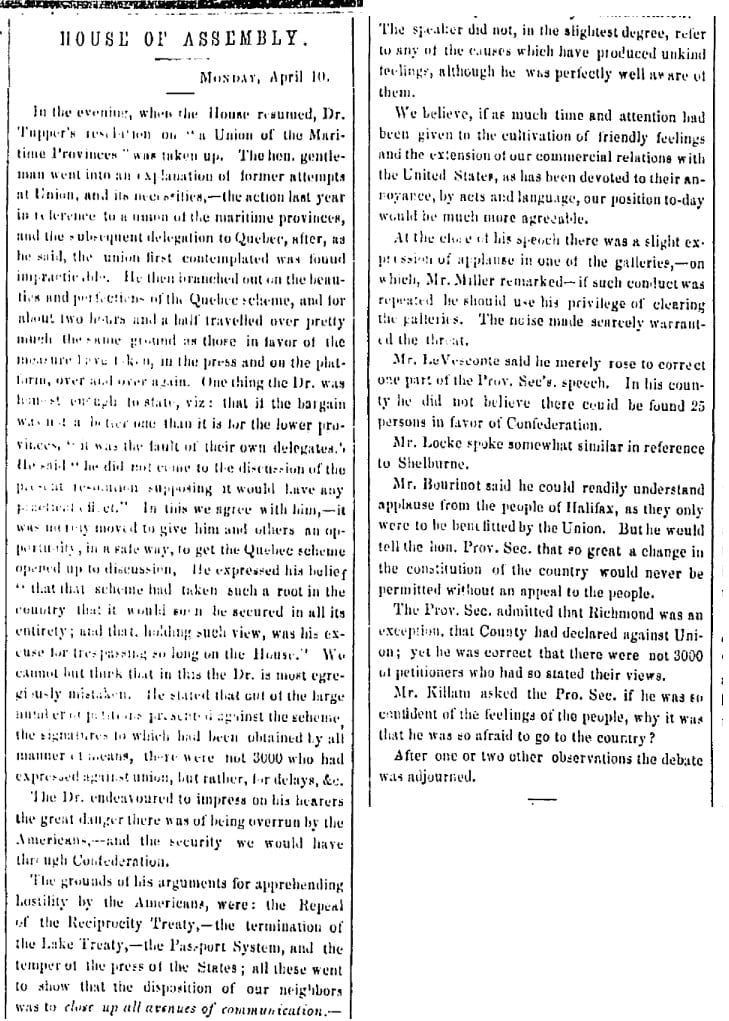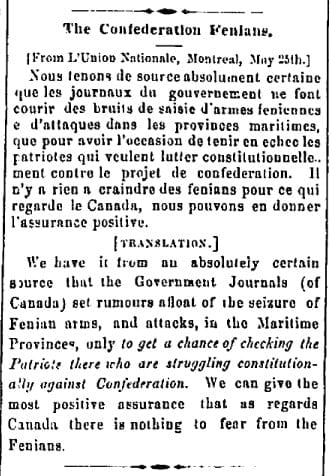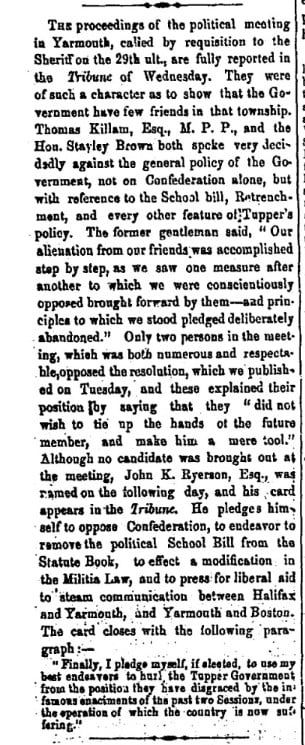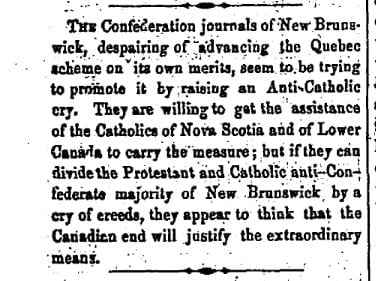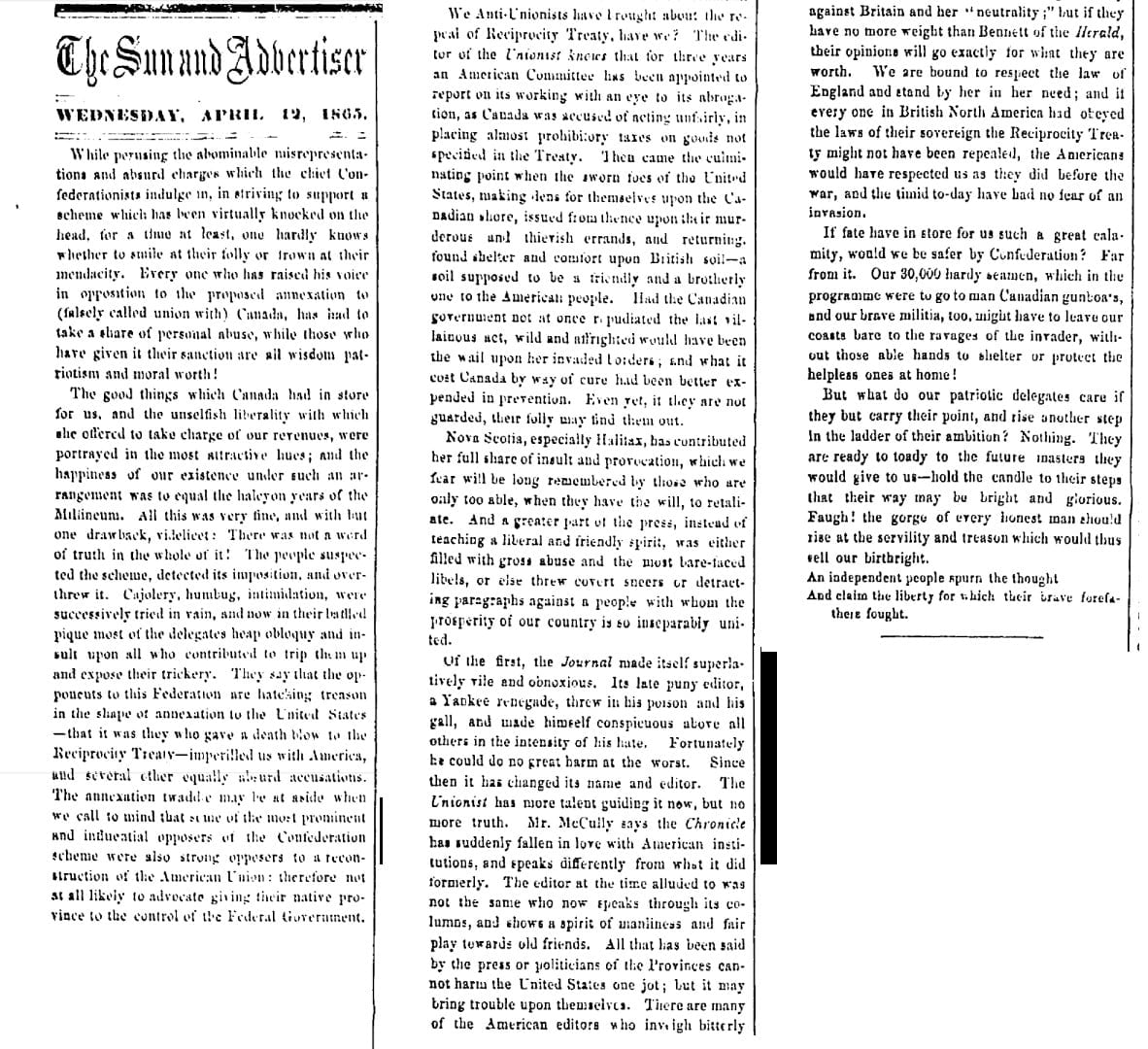Is the BNA illegitimate? Let these facts speak for themselves.
- The members of the Legislative Assembly elected in 1863 were only authorized to legislate under the Colonial Constitution and had no authority to make significant changes to it without first obtaining the people’s consent through a vote.
- The resolution of April 10, 1867, which preceded the enactment of the British North America Act, was the only authority possessed by the delegates who procured the Act, and it did not empower them to arrange a federal union without including Newfoundland and Prince Edward Island.
- The delegation was not legally constituted, as it did not have equal representation from each colony as required by the resolution.
- The delegates did not ensure just provision for the rights and interests of Nova Scotia, as mandated by the resolution, and the proposed union would deprive Nova Scotians of their rights, liberty, and independence, furthermore it would expose them to arbitrary and excessive taxation, by a Legislature over which they can have no adequate control.
- The scheme of confederation was never submitted to the people of Nova Scotia for their approval before it came into effect, which the resolutions argue is essential for its constitutionality.
- The resolutions express dissatisfaction with the way Confederation was forced upon Nova Scotia without their consent and against their will.
- The people of Nova Scotia expressed loyalty to the Queen and her government but requested the repeal of the British North America Act as it pertains to Nova Scotia and asked for the revocation of the Queen’s Proclamation regarding Confederation.
Wilkins examines the unique constitutional situation of Nova Scotia, which was granted a constitution by King George II, further developed by his successors on the English throne. Despite its effectiveness, the constitution had some deficiencies, notably the lack of a court for impeaching and punishing political offenders.
He expresses a preference for Nova Scotia’s constitution, molded after British monarchy, which he sees as superior despite acknowledging the United States’ constitutional craftsmanship. The speaker then shifts focus to contrasting Confederation with Canada, which he finds “hateful and detestable”. He argues that joining the United States would afford Nova Scotia more freedom and self-governance than being part of Canada’s oligarchical system.
He highlights the loss of Nova Scotia’s freedom under the British North America Act, which gives Canada extensive power to tax Nova Scotia arbitrarily. He criticizes the lack of control Nova Scotia has over Canada’s legislature, with only 19 out of 253 members representing Nova Scotia at the time, since dwindling to 11 out of 338 members.
He concludes by asserting Nova Scotia’s right to preserve its own constitution, which he claims belongs to the people of Nova Scotia and cannot be taken away by the Parliament of England. He argues that Nova Scotia has never been legally confederated with Canada and asserts that it is up to Nova Scotia to decide its future regarding Confederation.
“Speeches delivered by Hon. Martin I. Wilkins, (attorney general) in the House of Assembly of Nova Scotia, session 1868, on resolutions relative to repeal of the “British North America Act, 1867”. Wilkins, Martin I. (Martin Isaac), 1804-1881. https://archive.org/details/cihm_23507

